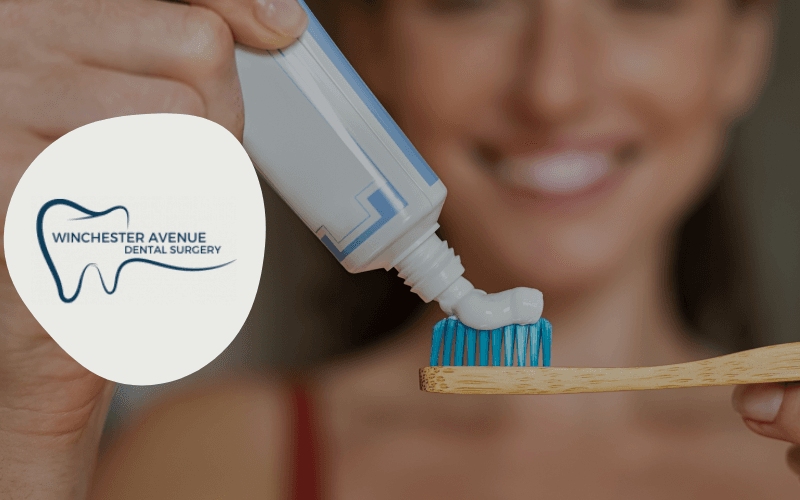Is Swallowing Toothpaste Bad? What You Should Know
Brushing your teeth is an essential part of maintaining good oral hygiene, but have you ever wondered what happens if you swallow toothpaste? While we all spit out toothpaste after brushing, accidents happen—especially with children. Is swallowing toothpaste bad, or is it harmless? In this blog, we’ll explore the effects of swallowing toothpaste, when to be concerned, and how to ensure safe brushing habits.
What happens if you swallow toothpaste?
Toothpaste contains ingredients that help clean your teeth, strengthen enamel, and freshen breath. The most important active ingredient in most toothpastes is fluoride, which plays a crucial role in preventing cavities. However, swallowing small amounts occasionally is unlikely to cause harm.
If you swallow toothpaste in small quantities, such as the residue left after brushing, it is generally harmless. However, swallowing larger amounts—especially fluoride toothpaste—can lead to mild to serious side effects.
Is Swallowing Toothpaste Bad?
Swallowing a small amount of toothpaste once in a while is not dangerous. However, regular ingestion, especially in large amounts, can be problematic. The main concerns include:
- Stomach discomfort – Swallowing too much toothpaste can irritate the stomach, leading to nausea or diarrhoea.
- Fluoride toxicity – Consuming excessive fluoride over time can cause fluorosis, a condition that affects tooth enamel and leads to discolouration.
- Poisoning in severe cases – Extremely high amounts of fluoride, such as consuming an entire tube of toothpaste, can lead to poisoning. Symptoms include vomiting, dizziness, and muscle weakness..

Is it safe for children to swallow toothpaste?
Children are more likely to swallow toothpaste because they may not yet have developed the habit of spitting it out. This is why fluoride-free or low-fluoride toothpaste is recommended for younger children. Swallowing too much fluoride as a child can lead to dental fluorosis, which causes white or brown streaks on the teeth.
To keep children safe:
- Use a pea-sized amount of toothpaste for children over three and only a smear for those under three.
- Supervise brushing to encourage spitting out toothpaste rather than swallowing it.
- Consider switching to a non-fluoride toothpaste for very young children until they learn to spit.
What to do if you or your child swallows too much toothpaste
If you suspect that someone has swallowed a large amount of toothpaste, watch for symptoms such as nausea, vomiting, diarrhoea, or dizziness. For minor cases, drinking water or milk may help dilute the effects.
However, in severe cases where large quantities have been consumed and symptoms are persistent, seek medical advice immediately. You can also contact an emergency dentist if you are unsure about the effects on oral health.
How to practise safe brushing
To prevent problems caused by swallowing toothpaste, follow these tips:
- Use the right amount of toothpaste – A pea-sized amount for adults and children over three, and a smear for younger children.
- Encourage spitting – Teach children to spit out excess toothpaste after brushing.
- Keep toothpaste out of reach – This prevents young children from accidentally consuming large amounts.
- Supervise brushing – Help children develop good oral hygiene habits by watching over their brushing routine.
- Choose the right toothpaste – Use fluoride toothpaste in appropriate amounts to balance cavity protection and safety.
Conclusion
While accidentally swallowing toothpaste in small amounts is generally harmless, consuming large quantities can lead to discomfort and potential health risks. To ensure safe brushing habits, use the right amount of toothpaste, supervise children, and encourage spitting rather than swallowing. If you ever have concerns, don’t hesitate to consult a dental professional for guidance.
For more expert dental advice or if you need urgent care, visit our emergency dentist service today.
Frequently asked questions - swallowing toothpaste
What happens if you swallow toothpaste accidentally?
Swallowing a small amount of toothpaste occasionally is not harmful. However, regularly ingesting large amounts can cause stomach discomfort or fluorosis.
Can you swallow toothpaste instead of spitting it out?
It is best to spit out toothpaste after brushing. While small amounts are not dangerous, regularly swallowing toothpaste is not recommended.
Is swallowing toothpaste bad for children?
Yes, particularly if they consume too much fluoride. It can lead to dental fluorosis, which affects developing teeth.
What should I do if my child swallows a lot of toothpaste?
Monitor them for symptoms like nausea or vomiting. If they have swallowed a large amount, seek medical advice immediately.
How can I prevent my child from swallowing toothpaste?
Use the right amount, supervise their brushing, and encourage spitting after brushing. Switching to fluoride-free toothpaste may help until they learn proper brushing habits.
